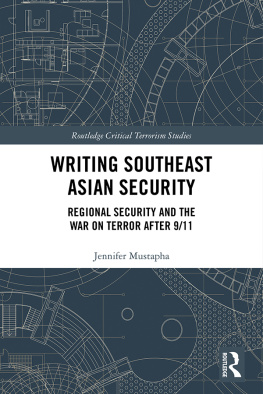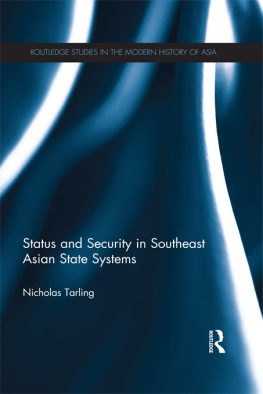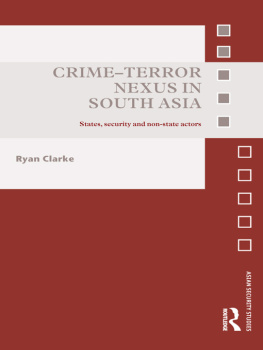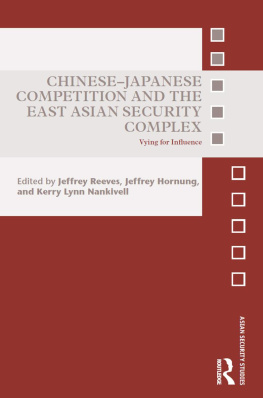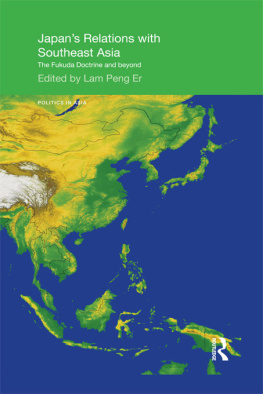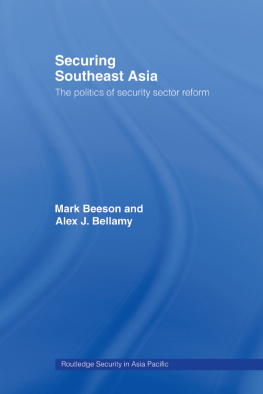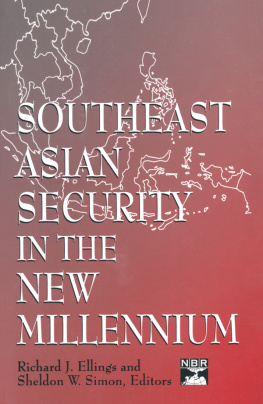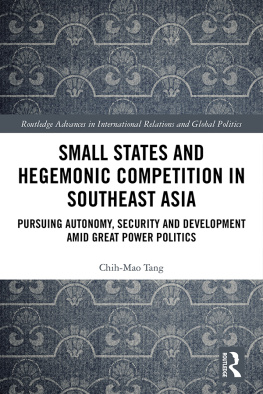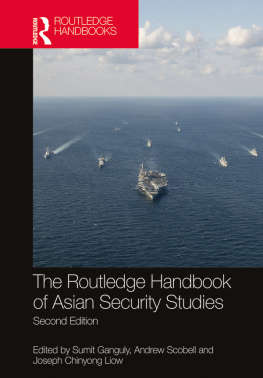Writing Southeast Asian Security
This book is a critical analysis of how the discursive and material practices of the War on Terror influenced security politics in Southeast Asia after 9/11. It explores how the US-led War on Terror, operating both as a set of material practices and as a larger discursive framework for security, influenced the security of both state and non-state actors in Southeast Asia after 9/11. Building on the authors own critical security studies approach, which demands a historically and geographically contingent method of empirically grounded critique, Writing Southeast Asian Security examines some of the unexpected effects that the discourses and practices of the War on Terror have had on the production of insecurity in the region. The cases presented here demonstrate that forms of insecurity were constructed and/or abetted by the War on Terror itself, and often occurred in concert with the practices of traditional state-centric security. This work thus contributes to a larger critical project of revealing the violence intrinsic to the pursuit of security by states, but also demonstrates pragmatic opportunities for a functioning politics of theorizing security.
This book will be of much interest to students of critical terrorism studies, critical security studies, East Asian, and Southeast Asian politics, US foreign policy, and IR in general.
Jennifer Mustapha is an Assistant Professor in Political Science at Huron University College, Canada. She researches and teaches critical international relations, security studies, and Southeast Asian regional relations.
Routledge Critical Terrorism Studies
Series Editor: Richard Jackson
University of Otago, New Zealand
This book series will publish rigorous and innovative studies on all aspects of terrorism, counter-terrorism, and state terror. It seeks to advance a new generation of thinking on traditional subjects and investigate topics frequently overlooked in orthodox accounts of terrorism. Books in this series will typically adopt approaches informed by critical-normative theory, post-positivist methodologies, and non-Western perspectives, as well as rigorous and reflective orthodox terrorism studies.
Terrorism, Talking and Transformation
A Critical Approach
Harmonie Toros
Russias Securitization of Chechnya
How War Became Acceptable
Julie Wilhelmsen
A Critical Theory of Counterterrorism
Ontology, Epistemology and Normativity
Sondre Lindahl
Narratives of Political Violence
Life Stories of Former Militants
Raquel da Silva
Islam and Sectarian Violence in Pakistan
The Terror Within
Eamon Murphy
Writing Southeast Asian Security
Regional Security and the War on Terror after 9/11
Jennifer Mustapha
For more information about this series, please visit: www.routledge.com/Routledge-Critical-Terrorism-Studies/book-series/RCTS
Writing Southeast Asian Security
Regional Security and the War on Terror after 9/11
Jennifer Mustapha
First published 2019
by Routledge
2 Park Square, Milton Park, Abingdon, Oxon OX14 4RN
and by Routledge
52 Vanderbilt Avenue, New York, NY 10017
Routledge is an imprint of the Taylor & Francis Group, an informa business
2019 Jennifer Mustapha
The right of Jennifer Mustapha to be identified as author of this work has been asserted by her in accordance with sections 77 and 78 of the Copyright, Designs and Patents Act 1988.
All rights reserved. No part of this book may be reprinted or reproduced or utilized in any form or by any electronic, mechanical, or other means, now known or hereafter invented, including photocopying and recording, or in any information storage or retrieval system, without permission in writing from the publishers.
Trademark notice: Product or corporate names may be trademarks or registered trademarks, and are used only for identification and explanation without intent to infringe.
British Library Cataloguing-in-Publication Data
A catalogue record for this book is available from the British Library
Library of Congress Cataloging-in-Publication Data
A catalog record has been requested for this book
ISBN: 978-1-138-95778-7 (hbk)
ISBN: 978-1-315-66153-7 (ebk)
Typeset in Times New Roman
by Wearset Ltd, Boldon, Tyne and Wear
Contents
This book is based on my doctoral thesis, and for a variety of reasons both personal and professional some time has passed since its first iteration. It has been substantially updated to reflect new research, new information, and the ongoing work that I have been doing to refine my own theoretical and practical understanding of the puzzles that motivate me. Getting this book to publication has reminded me of all the new questions I have been asking in the years since I obtained my PhD not just about my research area, but about the whole world of academia and my own purpose in it. It has reminded me of the degree to which an effective scholar is always learning, always revising, and always being thoughtful about why they do the work that they do. I hope that this book reflects that, and that readers will find it useful and engaging.
I am forever grateful for the support of Richard Stubbs and Marshall Beier, who greatly influenced my ideas and research on this project. Thanks also to Lana Wylie, Richard Jackson, Netina Tan, and the anonymous reviewers for their encouragement and helpful suggestions. I also need to acknowledge my academic peer group and our ongoing chats about our work and our lives. You know who you are, and how much you all mean to me. And, finally, writing projects demand the support, love, and patience of partners, children, parents, family, and friends who are like family. Unbounded thanks are always due to all of you. To S and Z most of all, I love you.
I started my post-graduate research in the fall of 2006, a mere five years after the events of September 11, 2001 and relatively early into the era of contemporary security politics that followed. The terrorist attacks of 9/11 were still relatively fresh and the ensuing American-led War on Terror was in full swing. As with the fall of the Berlin Wall, 9/11 became a pivotal event that prompted a firestorm of (re)theorizing in the field of International Relations (IR) and in the social sciences more generally. Scholars, students, policy makers, and popular pundits asked questions like: How has 9/11 changed the world? What did September 11, 2001 mean? Why has 9/11 itself come to be used to refer to the events of that day?1 What values and ideas are now held to be true in the after-space of a post-9/11 world? These questions, and more, animated the landscape of post-9/11 theorizing. Academic responses to the terrorist attacks were varied.
Old-guard realists initiated a chorus of academic Schadenfreude, almost cheerfully refuting Fukuyamas (1992) End of history and its attendant liberal visions of a Kantian post-Cold War peace spreading across the globe (see Krauthammer 2002; Walt 2002; Kaplan, Kristol, and Whitfield 2003). And for those skeptics who had been doubtful of the globalization thesis, so in vogue throughout most of the 1990s, the events of 9/11 and the divisive fractures in world politics that followed seemed to support their rejection of a more optimistic view of globalization (see Friedman 2002; Falk 2003). For them, 9/11 meant that the very idea of globalization had been delegitimized by the terrorist attacks since perhaps globalization itself had acted as a catalyst for the rise and reach of

